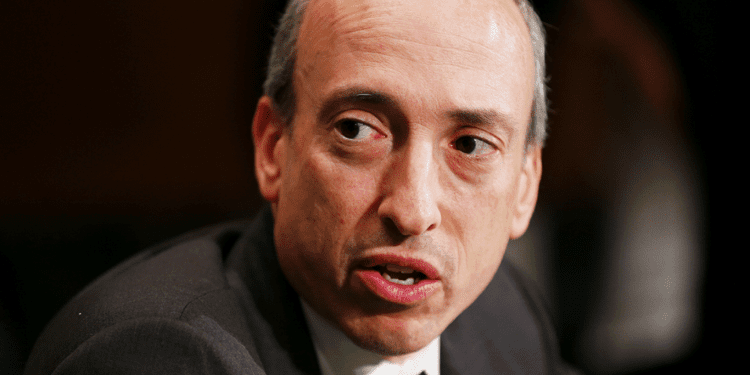- Cryptocurrency issuers and exchanges must comply with existing security laws – SEC Chair Gary Gensler.
- The SEC chief suggests stipulates that the proof-of-reserves are not enough to protect investors in crypto exchanges.
- Gensler hopes the pending charges against FTX’s former brass send a message to the crypto community.
The cryptocurrency industry has faced a lot of shocks and surprises this year. The space was hit with the Terra/Luna crush in May and, later on, the collapse of the gigantic crypto exchange FTX in early November. The downfall of FTX has undermined various companies’ and customers’ confidence in the crypto realm, as some are still healing from the platform’s heartbreak.
However, the ongoing market turmoil has alerted various security regulators, including the Security Exchanges Commission (SEC). In an interview with Bloomberg, the SEC Chair Gary Gensler noted that the regulator is just getting started with its crackdown on crypto platforms that do not comply with the rules.
Gensler also stipulated that the patience of the SEC is diminishing with more digital asset exchanges violating the rules and regulations. He also emphasized that casinos in the Wild West are non-compliant intermediaries.
“The running way is getting shorter for crypto firms to come In and register with the SEC. The casinos in the” Wild West” are non-compliant intermediaries.”
The SEC chair also gave remarks on proof-of-reserves reports used by several crypto exchanges, including Binance, to prove that they have sufficient funds to satisfy customer withdrawals. He further stated that the audit method does not fulfill the segregation of customer funds under securities law.
“Proof of reserves is neither a full accounting of the assets and liability of a company nor does it satisfy segregation of customer funds under the securities law.”
The SEC believes that the existing crypto rules and regulations are adequate, and the exchanges must ensure compliance. The agency also criticized the founder of FTX, Sam Bankman-Fried, and two of his associates, Gary Wang and Caroline Ellison, former executives in the Alameda trading firm, for defrauding investors.
Ms. Ellison and Mr. Wang pleaded guilty to the charges filed against them by the Justice Department, and as reported earlier, they are cooperating in the ongoing investigations. The ex-founder of FTX also pleaded guilty to the charges filed against him by the federal prosecutors in their investigation of the collapsed crypto exchange. The now-bankrupt exchange was once ranked the world’s most effective crypto trading platform.
Gensler’s Wish on Exchanges Violating Security Rules
The collapse of the FTX firm sparked many investigations, as the SEC focused on whether the firm commingled with the customer’s funds in the affiliated hedge fund. Gensler stipulated that crypto platforms should give users confidence that their crypto is complying with time-tested custody, segregation of customer funds rules, and accounting rules. The SEC is focused on crypto companies’ financial record keeping. The SEC chair further added:
“Financial history would tell you that most of these tokens(the native token of crypto exchanges) will fail. (Insiders) sell the public on an idea while they’re potentially fraudulently pumping up the stock. This leads to distorted incentives and puts the public at risk of the token not being properly registered, having proper disclosures, and complying with the various securities law provisions about anti-fraud and anti-manipulation.”
Early last week, the SEC chief emphasized the importance of regulating crypto issuers and intermediaries. In its recent publication of the strategic plan for the future, crypto is among its top priorities. Noteworthy, Gensler has also revealed that he hopes that the charges against FTX’s former brass will send a message to other crypto exchanges violating security rules.














